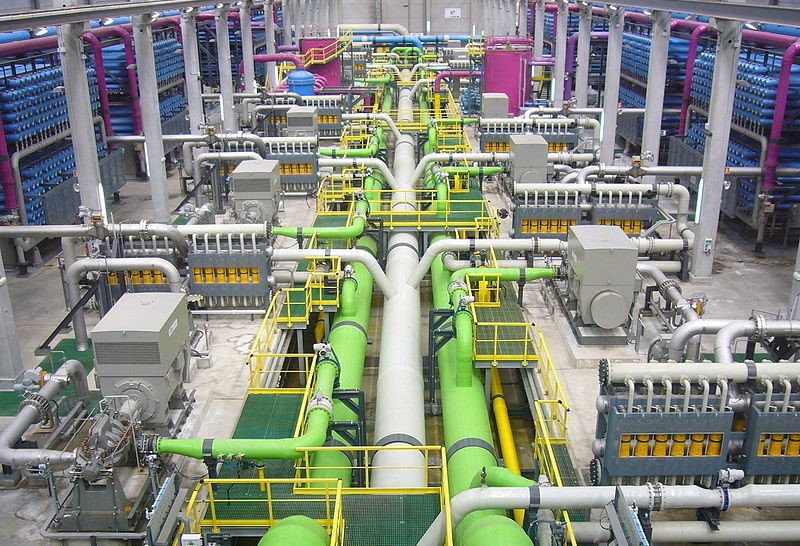The global average levelized cost of drinking water (LCOW) from desalination plants could decline from around €2.40/m3 in 2015 to €1.05 by 2050 if solar, storage systems and other renewable energies are used to decarbonize the sector.
That is one of the key findings of the Strengthening the global water supply through a decarbonized global desalination sector and improved irrigation systems, study by the Lappeenranta University of Technology (LUT) in Finland. The report, written by professor of solar economy Christian Breyer and his team, has been published in Energy and on the ScienceDirect website.
According to the paper, the cost of desalinated water in most regions could range from €0.32/m3 to €1.66 by 2050, including delivery expense. The researchers specified some regions of China, India, Australia and the U.S. could be among the areas where drinking water costs less than a euro.
Solar and storage, as well as wind power, gas and thermal energy will power desalination operations, according to the LUT study. “The energy demand to transport the desalinated water from the coastline … is also accounted for in each time step,” the authors of the study stated.
The report’s authors noted the energy transition is set to see the levelized cost of energy (LCOE) fall from around €180/MWh five years ago to around €50 by mid century. “In 2050, solar PV plants and battery storage [will] account for the largest share of the LCOE,” stated the report.
In a previous study, Breyer and his team described how a renewables-based global energy system would be cleaner, cheaper and better equipped to fight climate change and would also reduce water consumption from conventional power generation by more than 95%. That report estimated solar generation requires just 2-15% of the water used by coal and nuclear power plants for each megawatt-hour produced.
This content is protected by copyright and may not be reused. If you want to cooperate with us and would like to reuse some of our content, please contact: editors@pv-magazine.com.




1 comment
By submitting this form you agree to pv magazine using your data for the purposes of publishing your comment.
Your personal data will only be disclosed or otherwise transmitted to third parties for the purposes of spam filtering or if this is necessary for technical maintenance of the website. Any other transfer to third parties will not take place unless this is justified on the basis of applicable data protection regulations or if pv magazine is legally obliged to do so.
You may revoke this consent at any time with effect for the future, in which case your personal data will be deleted immediately. Otherwise, your data will be deleted if pv magazine has processed your request or the purpose of data storage is fulfilled.
Further information on data privacy can be found in our Data Protection Policy.